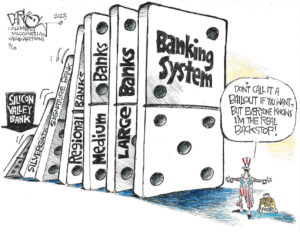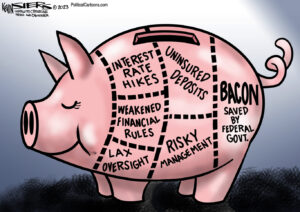We Need Elizabeth Warren on the Supreme Court
Elizabeth Warren is uniquely positioned to revive the flagging spirits of the left, and help restore the country’s confidence in the Supreme Court, which has sunk to record lows. AP Photo/Charles Dharapak
1
2
AP Photo/Charles Dharapak
1
2

AP/Charles Dharapak
Independent journalism is under threat and overshadowed by heavily funded mainstream media.
You can help level the playing field. Become a member.
Your tax-deductible contribution keeps us digging beneath the headlines to give you thought-provoking, investigative reporting and analysis that unearths what's really happening- without compromise.
Give today to support our courageous, independent journalists.




You need to be a supporter to comment.
There are currently no responses to this article.
Be the first to respond.